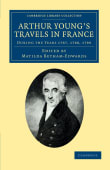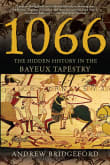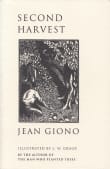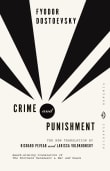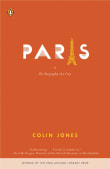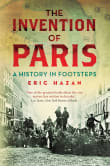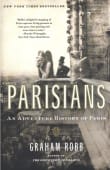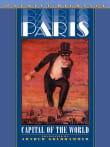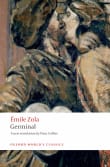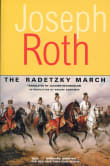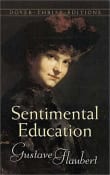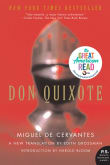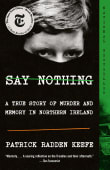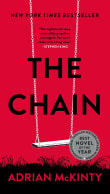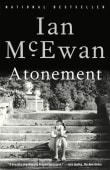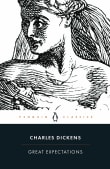Les Miserables
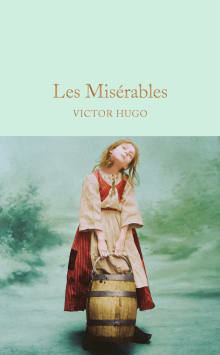
Book description
NOW A SIX-PART MINISERIES ON MASTERPIECE ON PBS
The only completely unabridged paperback edition of Victor Hugo’s masterpiece—a sweeping tale of love, loss, valor, and passion.
Introducing one of the most famous characters in literature, Jean Valjean—the noble peasant imprisoned for stealing a loaf of bread—Les Misérables ranks among the…
Why read it?
8 authors picked Les Miserables as one of their favorite books. Why do they recommend it?

This book portrays the emotional conspiracies involving rape, wild sex, cruelty, miseries, and the poverty-stricken French people during the 19th century.
The book resonates with the life of the upper and lower classes of society. There is hatred between the gendarme Javert and Jean Valjean, a poor man. The gendarme is looking for any reason to put the poor man in jail, who has already been in jail for 17 years for stealing a loaf of bread.
I love this book because you can compare life between the past and the present and find a lot of similarities between now…
From Sayed's list on exploring emotional conspiracies and the heavy toll they take on relationships.

Another classic, and quite possibly my favorite. It has been dramatised many times, though nothing beats the full novel.
Admittedly with a slow-paced start, the narrative soon grips you with the intensity of its plot and unforgettable characters – most prominent, of course, being the protagonist (Jean Valjean). After serving a long sentence, he then must contend with the prospect of a lifetime of prejudice and discrimination by being an ex-con, but he escapes this and, with the help of a kind bishop, sets himself up under a different name.
Here he transforms into Monseiur Madeleine, a philanthropic businessman who…
From Stephen's list on the power of redemption.

Les Misérables showcases the terrible power imbalance between the poor and the morality police. Jean Valjean is irredeemable in the eyes of Inspector Javert for stealing a single loaf of bread. Fantine is forever tainted by one dalliance with a boy of privilege. Her daughter Cosette is considered illegitimate at birth and exploited at every turn.
These rag-tag individuals find solidarity in the gutter. They reinvent themselves as needed, care for the lost children of others, and fall in love with hope for the future. Some even take to the streets in a revolt inspired by the bloody Paris Uprising…
From L.A.'s list on yearning and revolution.

I could relate to the convict who found the path toward redemption by helping other people. I believe that directing our thoughts and actions toward other people could be the only way to redeem ourselves from crimes we have committed and to attain forgiveness. The convict persists on this path despite being persecuted for crimes of his past. The minor characters are on this same path, which exemplifies the saying that love is not a feeling, it’s action.
From Tom's list on redemption and forgiveness.

Les Miz was the first book I truly read as a kid. I was in high school, and we mostly read boring old textbooks and I never had an interest in reading anything outside of what was required. That all changed when I was assigned to read Hugo’s novel in sophomore English class. Not only did I learn about the turbulent history of France, but I saw it through the eyes of Jean Valjean. Jean fought against all odds to live the life he wanted to live and change the lives of people around him. I’ll never forget that twist midway through…
From Joe's list on that made me write a book about my life.

Victor Hugo is a consummate novelist with his finger on the pulse of the social and political history of his time, coupled with an ability to create strong and vibrant characters. You just have to look at the chapter "Petit Gervais" or the one in which Valjean gives himself up rather than see an innocent man suffer to understand this. Les Miserables is his undoubted masterpiece and if you read it, it will stay with you forever. It's hard to put a choice of favourite books in order because, like friends, you value books equally for different qualities, but this…
From Anton's list on the best I have read so far.

At first sight, Les Misérables is undeniably a hefty and rather daunting novel, but any initial hesitation will soon dissipate. Set in the years after the Napoleonic Wars and culminating in the republican uprising of June 1832, Victor Hugo’s novel – written between 1845 and 1862 – explores the great questions of law, redemption, love, revolution, and the grinding poverty of his day. At the same time, Hugo delves into the Parisian past and evokes the cityscape, the streets, and the histories of some of its neighbourhoods.
There is even a chapter on the Paris sewers, through which the…
From Mike's list on the history of Paris.

Hugo was a huge fan of Napoleon and devotes 19 (short) chapters of his masterpiece to weirdly fascinating passages explaining how the French won the Battle of Waterloo while losing it. Very French historical doublethink. (Basically: they were the underdogs and won a moral victory when the Gardes refused to surrender). But amidst all the pro-Napoleon propaganda, there are some superb battle descriptions. Hugo really gets into the soul of the French soldiers and seems to die with them in the mud and smoke. He also gives wonderfully scornful French quotes like: “Waterloo was a battle of the first order…
From Stephen's list on why the French deny their own history.
Want books like Les Miserables?
Our community of 10,000+ authors has personally recommended 100 books like Les Miserables.
Browse books like Les Miserables
5 book lists we think you will like!
Interested in France, orphans, and Paris?
10,000+ authors have recommended their favorite books and what they love about them. Browse their picks for the best books about France, orphans, and Paris.
